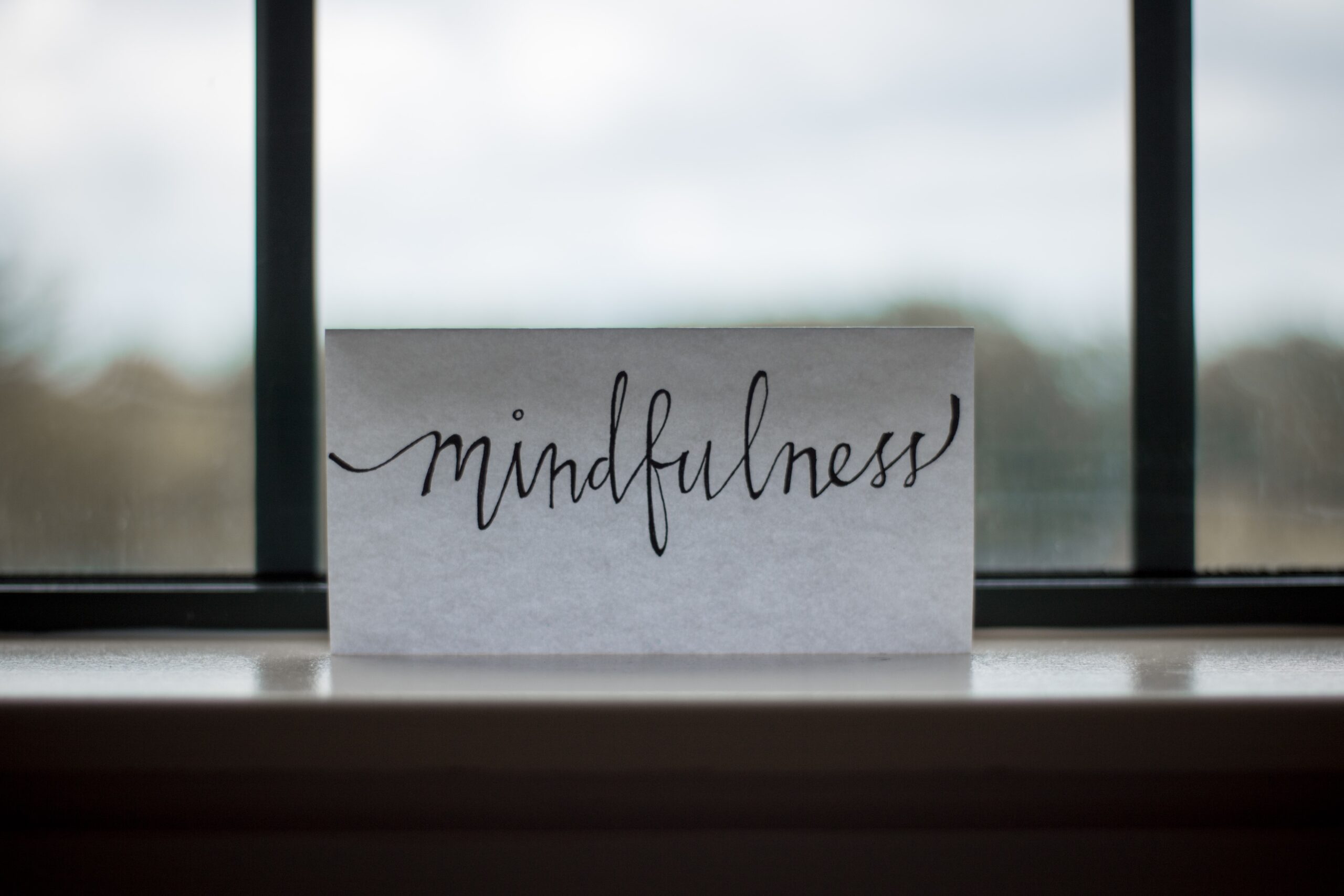Food Mindfulness
share to:

Therapist Perspective:

“Mindfulness” has become a buzzword in the last decade as a method to approach everything from getting better sleep to creating stronger focus at work and school. As a tool in treatment, mindfulness became the focus of Jon Kabat-Zinn’s Mindfulness Stress Reduction Program (then Clinic) for chronically ill patients at the end of the 1970’s (University of Massachusetts Medical Center). However, the concept is FAR older. It originated from the first factor of the Seven Factors of Enlightenment in Buddhism. The etymology originates in Pali: sati, or सति [from Wikipedia’s page “Sati (Buddhism)”]. Sati does not directly translate into the idea of mindfulness we have in modern Western culture today, the translation came from a French interpretation in the first half of the 16th century and circled from there.
Okay, highly shortened history lesson over.
When I talk about mindfulness in therapy sessions, it frequently comes up in how to ground during highly stressful episodes, as well as a way of becoming more in-tune with your body. When you’re having a hard time with what your body is asking of you (like feeling extra hungry and deprived while dieting, or staying awake to finish a task after a long day of school or work?)–you cognitively push yourself to ignore those signals. Do that enough times and your body stops “telling” you what’s going on. This is also why, by the way, meal plans and specified completion percentages are part of early eating disorder recovery. A regular practice of mindfulness leads you to become more aware of more and more subtle signals from your body (cue “The more you know” clip from NBC). By being more aware of your body signals, you can be more assured of what your body is telling you and needing–and you can bring yourself to nourish and otherwise care for your body better than any written plan can*.
*excepting for very specific medical instructions.
How can you start incorporating mindfulness with your food?
- Start small. Frequently, therapists and dietitians teaching mindfulness with food will use a single grape or piece of chocolate to teach the process.
- Then go through each of your 5 senses. Slowly. Pay close attention to what you get from each sense, even before putting it in your mouth.
- Does the food look smooth, shiny, matte, multi-textured? What color or colors do you see?
- How does it smell? Do you think it would smell differently if it were warmer or cooler?
- If the food is finger food (or if you’re channelling your inner child, go for it with any food!), what is the texture to your fingers? How many different textures do you notice? How would you describe the temperature?
- Then take a bite!
- Do you hear a sound as you bite? Is it louder or quieter than you expected?
- You noticed the texture before you put it in your mouth, now notice the texture in your mouth. Is it juicy? Cool? Mushy? Crumbly?
- Finally, how does it taste? How many words can you use to describe the flavor?
- With all of this attention on the food, does it taste differently than you remember?
You can build your mindfulness from here. It’s common to experience a greater sense of satisfaction from your food when you pay closer attention to it. What would that be like?
If this short experiment with mindfulness brings up discomfort or stress, it would be a good idea to meet with a non-diet dietitian and/or therapist with training in eating disorders and body image to discuss what came up and how you can create a more peaceful relationship with food and your body. We’re here to help!
Oh wait, here’s a non-diet dietitian for you!
Dietitian Perspective:
As Elizabeth described, having a structured meal plan is a huge mindfulness adventure. Most “DIETs” (and I mean the four letter word!) incorporate structure through timing (think intermittent fasting) , exact types of foods to eat (think the Whole30 meal plan) or elimination of food groups (think Keto) with the intent and goal of weight loss. These concepts have nothing to do with mindfulness, trusting your body or eating with pleasure and contentment. The sole purpose is weight loss and “health” (hijacked). This is why 95% of “DIETs” fail YOU (not that YOU failed at DIETing). Why, you might ask? Because you didn’t really learn mindfulness, you were encouraged to disregard your own bodily cues and they destroy your relationship with food and body.

With “food mindfulness,” meal planning revolves around working with your biology (eating every 3-4 hours) incorporation of all foods (from fruits, veggies and whole grains to a hot fresh baked chocolate chip cookie), slowing down the eating process and eating without distraction so you can reconnect to your body and your unique likes and dislikes. The goal is NOT weight loss. As described above, mindfulness has been encouraged to incorporate in life for stress reduction. “DIETing” (here is that four letter word again) actually is VERY stressful on your body and mind.
So, using a meal plan whether you are recovering from an eating disorder or just chronic dieting can be a huge tool to bring peace with food and your body. It’s never intended to be a longer term tool, just one of many that you will relearn to use in your tool box; meal planning is one of the first tools you’ll need though as you learn the skills to bring your towards “food mindfulness.” We are here to support you!